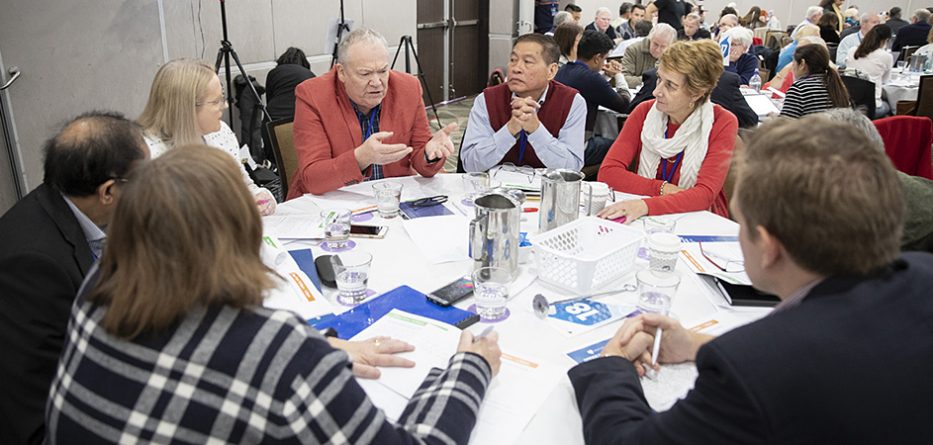We are probably all familiar with the word discernment. We speak of people discerning their vocation. Perhaps in a church meeting, people speak of the need to take time to discern. We are currently in the midst of Phase Two of Plenary Council 2020, where we are considering six National Themes for Discernment.
Yet, why use this fancy word? Why not simply replace it with decision-making?
The difference partly lies in who is involved. Obviously, throughout the course of the day, I can make many decisions. But what if I am seeking the will of God regarding an upcoming decision? How does that work? And what happens when I am seeking God’s will with others?
Plenary Council 2020 offers a good model. As we consider the six plenary themes, each one is framed as a question. For example, how is God calling us to be a Christ-centred Church that is Missionary and Evangelising?
Up to two-and-a-half hours is set aside for a group of people to discern each theme. Immediately, one may throw up their hands, bemoaning such a long period. Surely, if people came prepared with discussion points, suggested actions could be shared, prioritised, and the best actions voted on. Why all the fuss?
At its heart, discernment involves listening to God, to one’s self, and to one another – listening not just for key ideas, but for the desires and feelings related to our ideas. If we are truly seeking God’s will, then we need to pause and listen to God. We need to pray.
Prayer itself can be a rather puzzling concept for us. How do we truly know, after praying together, what God may want from us? There are two extremes we must avoid. At one extreme, we can be so convicted of God’s will that no one else’s view matters. At the other extreme, we can be so convicted by our idea that we simply say that God’s will matches our own. In both cases, we have decided already.
Discernment begins with detachment, with surrendering the outcome, even our pre-conceived ideas. This is important for both groups and individuals. We then listen to God. We do this by attuning ourselves to a number of areas:
- Our own heart: how are we feeling, what are we thinking? Are we free in this space or pressured by agendas or expectations that limit our ability to freely decide?
- Our group sense: Similar to self, if as a group we feel pressured by the presence of a leader or someone who has, say, a strong emotional interest, this may affect the group’s discernment.
- The signs of the times: are we informed about the issues related to the area we are considering? In the case of the plenary themes, a snapshot report of each theme offers a range of views and voices to inform us of what others think.
- The deposit of faith: this includes scripture and Church tradition and is critical for us to make an informed response.
Within the plenary process, we spend more than half our time becoming aware of our feelings and thoughts regarding a key scripture passage and the snapshot report related to the theme we are considering. We share our thoughts and feelings with others, and we reflect back how we believe the Holy Spirit may be speaking to us as a group. Only then, after spending a good period of time in shared prayer and reflection with one another, do we venture to propose actions both at a national and local level.
Discernment takes time, and it may be that after our time together, we may not be able to agree. Our final step is to seek consolation. We want to ensure everyone affirms the decision that has been made by the group. Even if one person is unsettled, we will not force the decision. For this is part of discernment, to listen deeply, and come to a place of peace with the Holy Spirit and one another.
At the end of the day, there is no guarantee that we will make a right decision using the way of discernment, but we can trust we have made a good decision, respectful of self, others, our church and our God.
The Plenary Council invites people to continue to participate in the journey towards the Council sessions in 2020. There are many opportunities to engage in the “Listening and Discernment” phase by participating in small group sessions within the Diocese. Ask your priests or Deanery Representatives for session dates in parishes and deaneries or contact the Pastoral Planning Office on 8838 3441. You can also visit parracatholic.org/haveyoursay.
For more information on the Plenary Council, visit plenarycouncil.catholic.org.au.
Richard McMahon is the Director of Pastoral Planning & Implementation for the Diocese of Parramatta.








